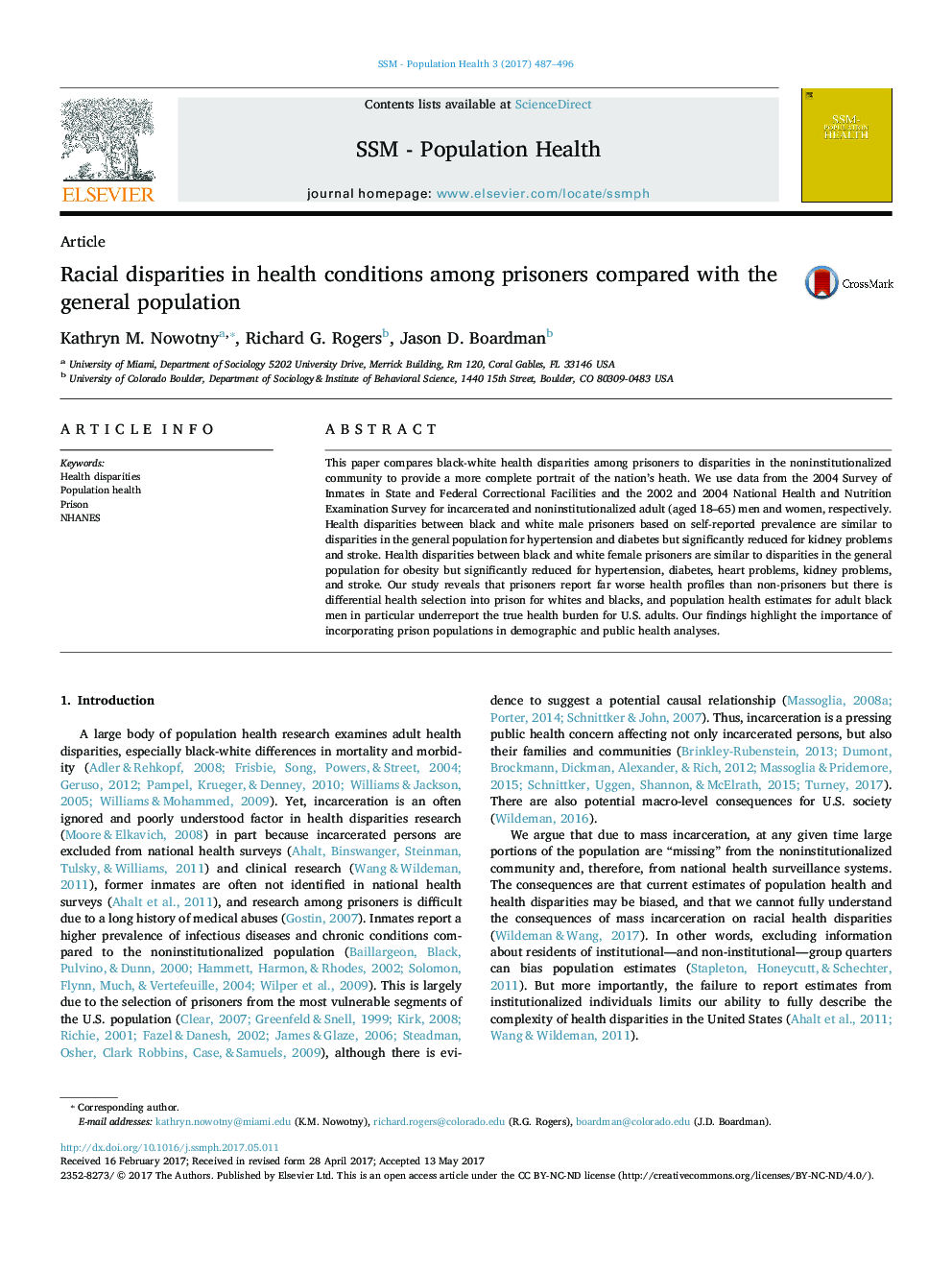| Article ID | Journal | Published Year | Pages | File Type |
|---|---|---|---|---|
| 5123281 | SSM - Population Health | 2017 | 10 Pages |
â¢Inmates have poorer health overall than the noninstitutionalized population, but more so for white women demonstrating a differential health selection into prison.â¢Health problems increase when inmates are included in national health statistics, especially for black men.â¢U.S. health statistics may underestimate the health of the nation with potential consequences for understanding racial health disparities.â¢Properly characterizing population health and health disparities requires the inclusion of incarcerated adults in mainstream epidemiologic studies.
This paper compares black-white health disparities among prisoners to disparities in the noninstitutionalized community to provide a more complete portrait of the nation's heath. We use data from the 2004 Survey of Inmates in State and Federal Correctional Facilities and the 2002 and 2004 National Health and Nutrition Examination Survey for incarcerated and noninstitutionalized adult (aged 18-65) men and women, respectively. Health disparities between black and white male prisoners based on self-reported prevalence are similar to disparities in the general population for hypertension and diabetes but significantly reduced for kidney problems and stroke. Health disparities between black and white female prisoners are similar to disparities in the general population for obesity but significantly reduced for hypertension, diabetes, heart problems, kidney problems, and stroke. Our study reveals that prisoners report far worse health profiles than non-prisoners but there is differential health selection into prison for whites and blacks, and population health estimates for adult black men in particular underreport the true health burden for U.S. adults. Our findings highlight the importance of incorporating prison populations in demographic and public health analyses.
